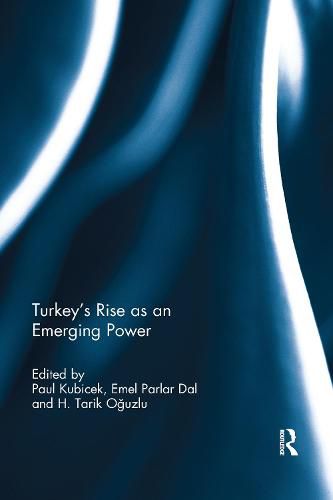Readings Newsletter
Become a Readings Member to make your shopping experience even easier.
Sign in or sign up for free!
You’re not far away from qualifying for FREE standard shipping within Australia
You’ve qualified for FREE standard shipping within Australia
The cart is loading…






Turkey is emerging as an important actor in world politics, exerting growing influence both in its immediate region and beyond. This book aims to understand and explain this phenomenon, utilizing a variety of perspectives from international relations theory. One prominent issue is how Turkey, long embedded in the West via NATO and other European organizations, is growing more confident and is asserting more independent foreign policy positions. This is particularly marked in the Middle East, where some suggest Turkey is pursuing a neo-Ottomanist agenda. At times, this competes with and creates tensions with the West. However, a rising Turkey can also be a constructive phenomenon and complement the West. This book examines geopolitical, economic, and cultural dimensions of Turkey’s rise, pointing to both Turkish success and the limits of Turkish power and influence. It includes consideration of Turkey’s relations with NATO, the European Union, the Middle East, and BRIC countries.
This book was published as a special issue of Turkish Studies.
$9.00 standard shipping within Australia
FREE standard shipping within Australia for orders over $100.00
Express & International shipping calculated at checkout
Stock availability can be subject to change without notice. We recommend calling the shop or contacting our online team to check availability of low stock items. Please see our Shopping Online page for more details.
Turkey is emerging as an important actor in world politics, exerting growing influence both in its immediate region and beyond. This book aims to understand and explain this phenomenon, utilizing a variety of perspectives from international relations theory. One prominent issue is how Turkey, long embedded in the West via NATO and other European organizations, is growing more confident and is asserting more independent foreign policy positions. This is particularly marked in the Middle East, where some suggest Turkey is pursuing a neo-Ottomanist agenda. At times, this competes with and creates tensions with the West. However, a rising Turkey can also be a constructive phenomenon and complement the West. This book examines geopolitical, economic, and cultural dimensions of Turkey’s rise, pointing to both Turkish success and the limits of Turkish power and influence. It includes consideration of Turkey’s relations with NATO, the European Union, the Middle East, and BRIC countries.
This book was published as a special issue of Turkish Studies.